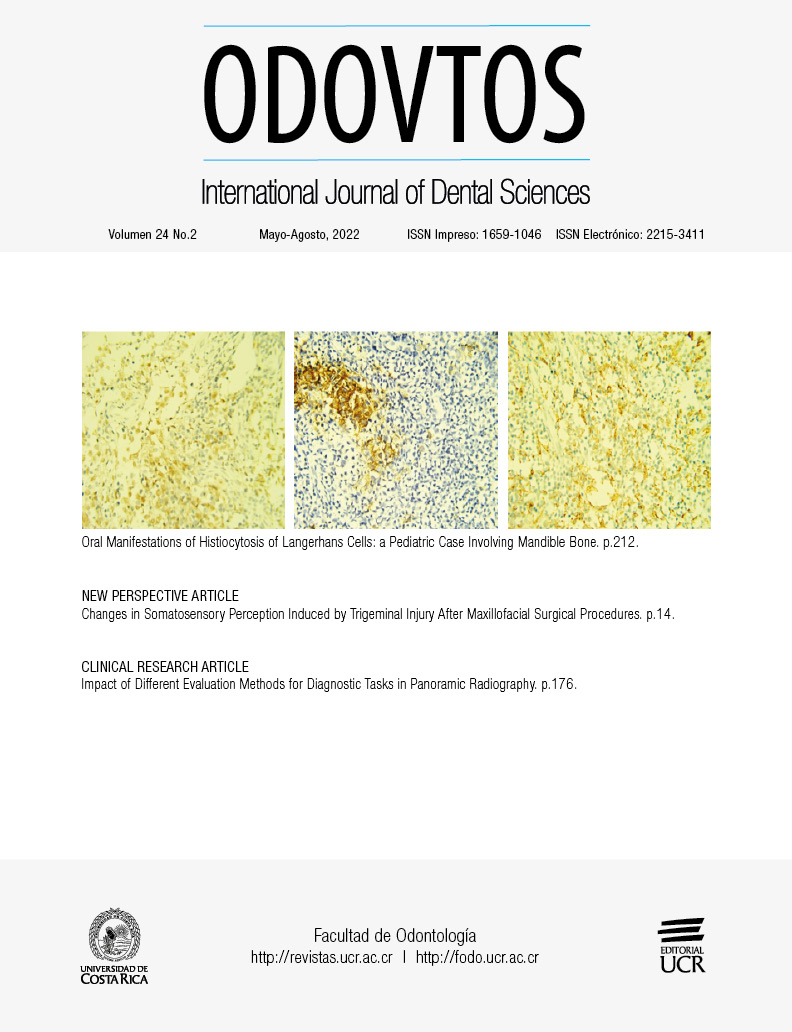Resumen
Evaluar los resultados del impacto de la salud oral en la calidad de vida mediante el OHIP-14 en relación a la caries dental y los determinantes sociales en migrantes venezolanos. Metodología: Se realizó un estudio transversal en una población de 350 migrantes venezolanos (30.1±7,4 años; 52% Varones). Donde para evaluar el impacto de la salud oral en la calidad de vida se utilizó el cuestionario “Oral Health Impact Profile spanish versión Lima” (OHIP-14sp Lima), contrastándose tanto con factores clínicos (índice CPOD) como sociodemográficos, para poder determinar la influencia de estos sobre el instrumento. Se determinó el impacto de la salud oral en la calidad de vida (OHIP-14), según el promedio de puntaje general y por dimensiones. Posteriormente, se realizó un examen clínico evaluando la presencia de lesiones de caries dental (Índice CPOD) y se recolectaron datos sociodemográficos por medio de una encuesta. Resultados: El promedio del OHIP-14sp Lima generó un impacto negativo del 10.6% en la población migrante. Donde la dimensión de “Malestar Psicológico” fue la que demostró una mayor frecuencia de impacto negativo con un porcentaje de 38,3%. Conclusión: Los resultados del OHIP-14 sp Lima en el total de migrantes evaluados, fueron bajos en términos porcentuales, generando en su mayoría un promedio de un impacto positivo. Sin embargo, no se puede descartar que factores sociodemográficos como el sexo y niveles de escolaridad; fueron factores que sí generaron un impacto negativo, afectando significativamente los resultados observados en una o varias de las dimensiones evaluadas mediante el instrumento OHIP-14 en el presente estudio.


